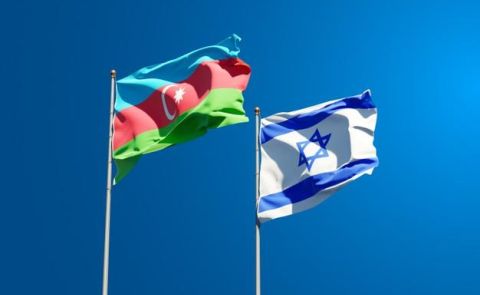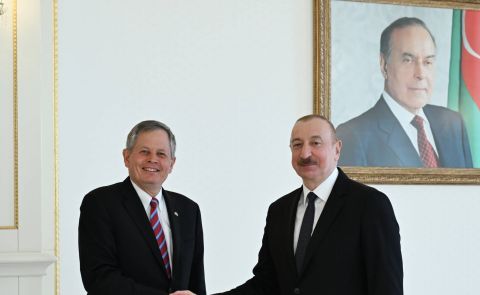
EU adopts joint communication on Eastern Partnership policy beyond 2020
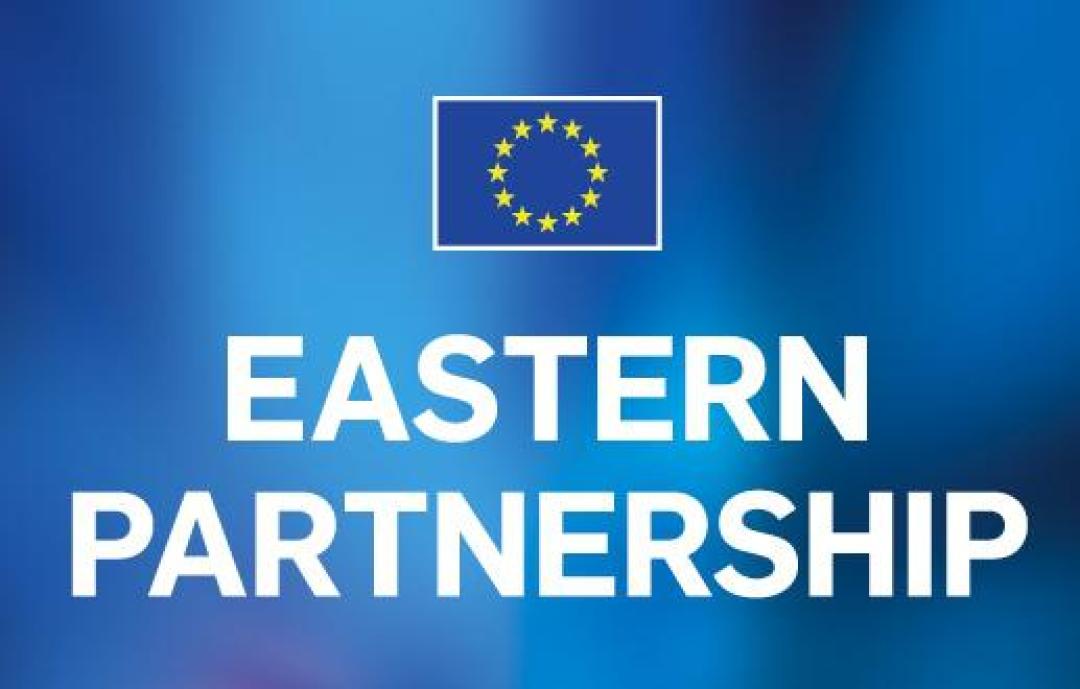
On 18 March, the European Union published their joint communication which set up the future directions of the EU’s relations with the Eastern Partnership (EaP) countries entitled “Eastern Partnership policy beyond 2020: reinforcing resilience- an Eastern Partnership that delivers for all.” The priorities outlined in this joint communication will also underpin the future programming of EU assistance for 2021-2027, along with the joint documents between the EU and partner countries setting out common priorities
The EU, its Member States and the EaP countries will work together on the following long-term policy objectives: 1) resilient, sustainable and integrated economies; 2) accountable institutions, the rule of law and security; 3) environmental and climate resilience; 4) resilient digital transformation; and 5) resilient, fair and inclusive societies.
Resilient, sustainable and integrated economies
The document outlined that the aim is to create decent jobs and economic opportunities, ensuring prosperity for people living in the partner countries. This will entail increased trade and further regional and bilateral integration of the economies of partner countries and the EU, together with cooperation for progressive decarbonisation towards climate neutrality, embracing the opportunities from the twin ecological and digital transformation. The EU proposed to further deepen the economic integration with and among the partner countries, particularly that of the three associated countries through continued support for the full implementation of the current DCFTAs. The EU will also seek to collaborate and build alliances with the partner countries on pertinent wider, global economic issues in various multilateral fora including supporting the accession to the World Trade Organisation for current non-members. The EU will also support the green transition in the region.
The EU will continue to strengthen the partner countries’ key reforms, including through the External Investment Plan and notably the Structural Reform Facility. Considering the urgent need to scale up sustainable investments, the EU will further strengthen its cooperation with partner countries to set up a financial system that supports sustainable growth, notably through international fora such as the International Platform on Sustainable Finance (IPSF). The EU will also continue to support partner countries’ efforts to meet the criteria to join the Single Euro Payment Area (SEPA).
On transport, the EU focus will be on the long-term priority investments outlined in the Trans-European Transport Network (TEN-T) investment action plan. The EU will also help partner countries increase energy security by diversifying from oil or gas imports through investments in renewable energy and enhanced energy efficiency. The EU will also encourage energy market integration based on sound legislation.
The investment in youth was also outlined as one of the key areas in this field. The EU proposed a new deal for youth, which will include the following elements: 1) bridging the gap between the labour market and the education sector; 2) increasing support for the employability of youth and for youth entrepreneurship; 3) active labour market measures, such as the Youth Guarantee, to be adapted to the partner countries’ labour markets; and 4) building on a pilot young EaP civil servants job-shadowing scheme, setting up a mobility and exchange programme for the EaP directed at young professionals. Education reform would also be a strategic priority.
One of the EU’s main priorities for the future is to deliver under the European Green Deal, notably to become the world’s first climate-neutral continent. Partner countries are encouraged to identify priorities linked to climate change mitigation and adaptation and build new innovative and sustainable value chains. Joint commitments to address these priorities will be encouraged, along with definition of a strategy to make solutions available for rapid deployment.
Accountable institutions, rule of law and security
The document highlighted that the independence and accountability of the judiciary and prosecution are essential, in a system of checks and balances, to ensure that all state institutions abide by the law and that citizens have access to justice and can exercise their rights fully.
Also, the development of new anti-corruption digital tools helps to prevent and detect irregularities better, and several specialised bodies have been set up in recent years to tackle corruption. The EU will support a results-driven legislative and institutional framework, with a focus on high-level corruption, and will pay particular attention to the area of public procurement
One shared challenge in the broad area of security is organised crime. Here, the EU will continue support: 1) increased cooperation with EU justice and home affairs agencies; 2) security sector reform; 3) the fight against trafficking of human beings and illicit goods (notably drugs and firearms); and 4) integrated border management to improve partner countries' ability to withstand the pressures they face and step up their resilience
Environmental and climate resilience
For environment-related quality of life, increased effort is needed to make urban development more sustainable and further improve the delivery of environmental services, such as water supply and sanitation, waste management, green areas and urban mobility. It was highlighted that the energy efficiency of buildings was essential to address energy poverty and reduce greenhouse gas emissions in partner countries. Innovative financing instruments (such as energy performance contracts, on-tax and on-bill financing) could be used to achieve higher building renovation rates through attracting private finance. The EU would increasingly work with partner countries on green transport solutions, by helping build future-oriented smart cities creating urban mobility plans to integrate transport modes in urban areas.
The EU would also support the development of renewable energy sources. Also, the development of a green, circular economy is amongst the priorities. The work will continue on the promotion of sustainable product policies, eco-innovation, extended producer responsibility, other ways to prevent and reduce waste, waste management, green public procurement and better consumer information
Halting the loss of biodiversity was identified as one of the main goals of cooperation within the environment section. This includes tackling deforestation and desertification, introducing measures to protect specific species and extending and effectively managing protected areas. The Common Maritime Agenda for the Black Sea would also contribute as a regional governance framework.
Resilient digital transformation
The aim would be to extend the benefits of a Digital Single Market. The further development of a digital infrastructure in the EaP countries would thus be encouraged. Highly innovative digital start-up companies will be supported in the region through the extension of the Digital Innovation and Scale-up Initiative to the partner countries
The promotion of eGovernance in the EaP region was also outlined as a priority, in order to increase efficiency, transparency and accountability for public administrations and facilitate reforms. In this respect, the EU will support the adoption of legal frameworks for electronic identification schemes and electronic trust. Cyber resilience of the EaP countries would be further supported through the EU’s cybersecurity certification framework.
Resilient, fair and inclusive societies
A continued political will from partner countries is crucial to ensure that authorities involve citizens in decision-making. The EU will further support the capacity of civil society organisations, particularly grass root organisations, to meaningfully engage in policy-making processes and policy dialogue and promote reforms and public accountability. The EU will also continue to support the partner countries in ensuring that respect for rights is already experienced by persons belonging to minorities, conflict affected populations, and promoting gender equality.
Independent media outlets that produce high quality and diverse content will also be encouraged. The Action Plan against disinformation from December 2018 would serve as a framework to combat the disinformation campaigns in the EaP countries.
Visa facilitation and readmission, as well as the continuous fulfilment of relevant visa liberalisation benchmarks, were also outlined to be essential. The possibility to launch new visa liberalisation dialogues with the remaining countries, whose citizens require visas to travel to the EU, will be considered, provided that well managed and secure mobility conditions are in place, including through the satisfactory implementation of the visa facilitation and readmission agreements. Labour migration initiatives amongst the partner countries as well as between EaP and EU countries will be considered. These initiatives aim to establish partnerships to foster legal migration and mobility, enhancing cooperation and cross fertilisation of skills and competencies while taking account of the impact of brain drain on partner countries’ human capital. To help people and goods move across borders, technical and administrative cooperation in integrated border management will be strengthened.
See Also

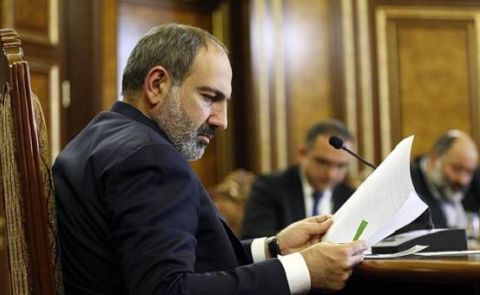
Pashinyan Commemorates First Republic Day, Highlights Progress in Sovereignty and Peace Efforts

Israeli Ambassador to Armenia Acknowledges Challenges but Optimistic About Future Armenian-Israeli Cooperation
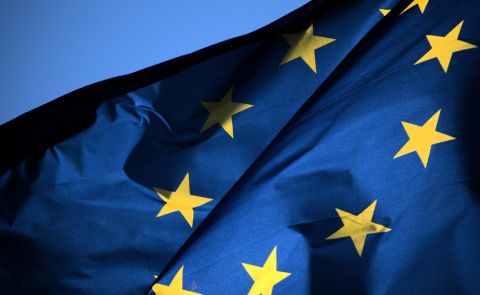
EU Plans Closer Cooperation with Azerbaijan, Georgia, Türkiye, and Other Black Sea States
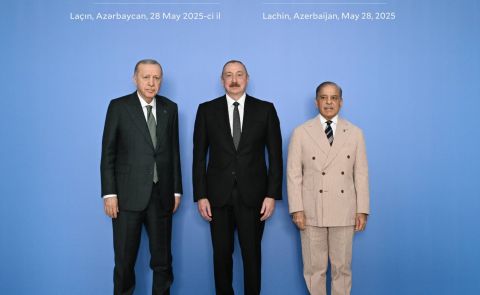
Azerbaijan, Türkiye, and Pakistan Highlight Growing Strategic Cooperation at Lachin Summit
